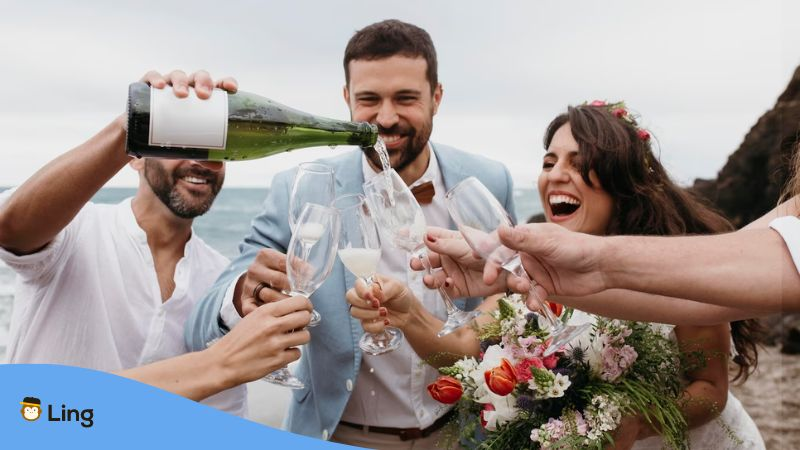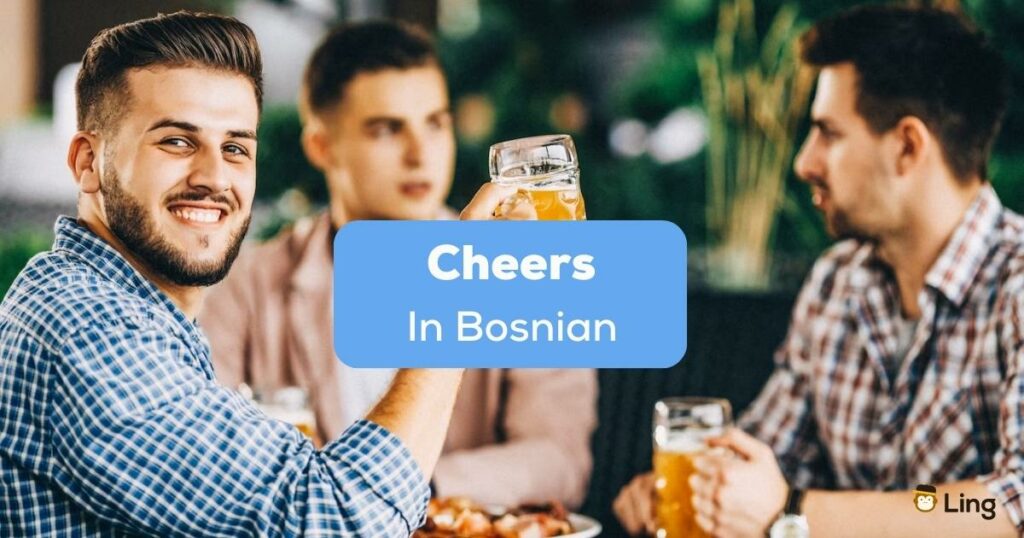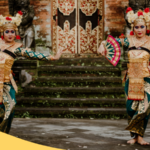Hey, want to learn how to say cheers in Bosnian? Trust me; it’s going to be fun and useful. If you ever visit Bosnia or have Bosnian friends, you’ll probably want to share a toast with them. And in this country’s culture, toasting is a big deal. Like really big! It’s not just about drinking; it’s a way to show respect, gratitude, and connection. But how do you say cheers in the Bosnian language? What are the rules?
Don’t worry. I’ll teach you different ways to say cheers, along with some cultural insights and tips. Let’s get to it!
The Most Common Ways To Say Cheers In Bosnian
First, let me show you the most common ways to say cheers in Bosnian. There are three main expressions: “živjeli,” “hvala,” and “hvala vam,”. Their translations are “to live,” “thank you,” and “thank you very much.”
“Živjeli” – The Universal Toast
“Živjeli” (ZHEE-vyeh-lee) is a versatile way to say cheers in Bosnian. It means “to live” or “long live.” It symbolizes good health and happiness. Use “živjeli” to express a positive outlook on life:
- When meeting someone new or reconnecting, as a warm greeting.
- During celebrations or special occasions, to offer congratulations.
- While enjoying drinks with friends or family. To say cheers and enjoy.
“Hvala” – Expressing Thanks
“Hvala” (HVAH-lah) is another way to say cheers, meaning “thank you.” It’s a toast to show appreciation:
- When someone pours you rakija or wine. To thank them for the drink.
- When served ćevapi or burek. To express gratitude for the food.
- When receiving a souvenir or present from Bosnia. To acknowledge the gift.
“Hvala Vam” – Expressing More Thanks
For a more heartfelt thank you, use “hvala vam” (HVAH-lah vahm). This means “thank you all” or “thank you very much.” This expression adds sincerity and respect:
- When invited to someone’s home for dinner or coffee. To thank them for the invitation.
- When invited to a birthday, wedding, or anniversary party. To show appreciation for the celebration.

Formal And Polite Ways To Toast
In some situations, like a business meeting or a formal dinner, you might want to use polite Bosnian phrases. In Bosnian, you can use “nazdravlje” (NAHZ-drahv-lyeh) and “uzdravlje” (OOZ-drahv-lyeh), meaning “to health” and “to your health.”
“Nazdravlje” – A Formal Nod To Health
“Nazdravlje” is a formal way to say cheers in Bosnian. It translates to “to health” and is perfect for business meetings, official events, or fancy dinners. If someone sneezes, you can also say “nazdravlje” to say “bless you.” Use it:
- When meeting with Bosnian clients or partners.
- At official events hosted by the Bosnian government.
- Dining at an upscale restaurant with Bosnian colleagues or friends.
“Uzdravlje” – A Friendly Cheers
For a friendlier touch, use “uzdravlje,” meaning “to your health.” It’s similar to “nazdravlje” but more personal. You can use it as a reply to “nazdravlje” or “živjeli,” meaning “and to yours.” Use “uzdravlje”:
- When someone toasts you with “živjeli” or “nazdravlje.”
- When someone wishes you good health or good luck.
- When someone compliments your appearance or work.
Alternative Ways To Say Cheers
Looking for a more festive way to say cheers in Bosnian? There are some lively alternatives that mean “cheers” or “hooray.”
“Živio” And “Živeli” – Celebratory Expressions
For a joyful toast, you can use “živio” (ZHEE-vyoh) or “živeli” (ZHEE-veh-lee), meaning “cheers” or “hooray.” These expressions are all about excitement and admiration. Use them:
- At happy events like weddings, birthdays, anniversaries, or holidays.
- To congratulate someone on achievements like graduation, promotion, or winning a prize.
- To admire someone’s talent, like singing a beautiful song or giving a great speech.
“Klicati,” “Odobravati,” And “Veseliti Se” – Alternative Cheers
Want to get even more creative with your cheers? Try these alternatives:
- Klicati (KLEE-tsah-tee): This means “to shout,” “to acclaim,” or “to applaud.”
- Odobravati (OH-doh-brah-vah-tee): This translates to “to approve,” “to agree,” or “to support.”
- Veseliti se (VEH-seh-lee-tee seh): This means “to rejoice,” “to be happy,” or “to enjoy.”
These words can also be used as verbs or nouns, and here’s how you might say them:
- Kličemo te! (KLEE-cheh-moh teh): “We cheer you!” or “We applaud you!”
- Odobravam to! (OH-doh-brah-vahm toh): “I approve that!” or “I agree with that!”
- Veselimo se! (VEH-seh-lee-moh seh): “We rejoice!” or “We are happy!”
Veseliti Se – To Rejoice, To Be Happy, Or To Enjoy
You may also use “veseliti se” (VEH-seh-lee-tee seh), which means “to rejoice,” “to be happy,” or “to enjoy.” It’s a verb that’s all about expressing joy, happiness, or enjoyment. Use it:
- When you’re thrilled about your grades, health, or upcoming travel plans.
- When you achieve something big, like reaching your goals, fulfilling dreams, or hitting milestones.

Cultural Insights And Etiquette
The act of toasting isn’t just about raising a glass. It’s a meaningful way to communicate and connect. Here’s what you need to know:
Eye Contact And Politeness
In Bosnia, eye contact during a toast shows respect and sincerity. It’s also polite to say “molim” (MOH-leem), meaning “please,” before saying cheers.
So, you might say, “Molim, nazdravlje!” (MOH-leem, NAHZ-drahv-lyeh), translating to “Please, to health!”
The Act Of Clinking Glasses
Clinking glasses are part of the drinking culture in Bosnia. It symbolizes unity, friendship, and harmony. But there’s an etiquette to follow:
- Don’t clink with more than one person at a time. Clink individually, making eye contact.
- Avoid crossing your arm over someone else’s when clinking. Wait your turn or find a clear path.
- Don’t clink too hard or too softly. A gentle but firm clink makes a pleasant sound.
Occasions For Toasting
Toasting is a frequent practice in Bosnian culture, expressing various emotions and values. Here’s when and why people toast in Bosnia:
Weddings
Toasting celebrates the union of the bride and groom, their families, and friends. The best man usually starts, followed by the parents, guests, and newlyweds. Expect heartfelt, humorous, and poetic toasts, often with anecdotes or quotes.
Birthdays
During this occasion, the birthday celebrant starts saying cheers in Bosnian, followed by family, friends, and colleagues. Toasts are warm, sincere, and personal, often with compliments, wishes, or advice.
Business Meetings
Frequent in Bosnian business gatherings, toasting establishes rapport and trust. The host or leader starts, followed by guests or partners. Toasts are formal, respectful, and professional, frequently with praises, acknowledgments, or proposals.
Learn The Bosnian Language With Ling!
You’ve learned how to say cheers in Bosnian. Now, why not take it further? With the Ling app, learning Bosnian and 60+ different languages is within your reach. Trust me – Ling makes language learning engaging. You’ll not only learn words and phrases but also understand cultural traditions and etiquette.
Download the Ling app on Google Play and the App Store today!
































































